Charles E W Bean, Diaries, AWM38 3DRL 606/263/1 - 1916 - 1934 - Part 1
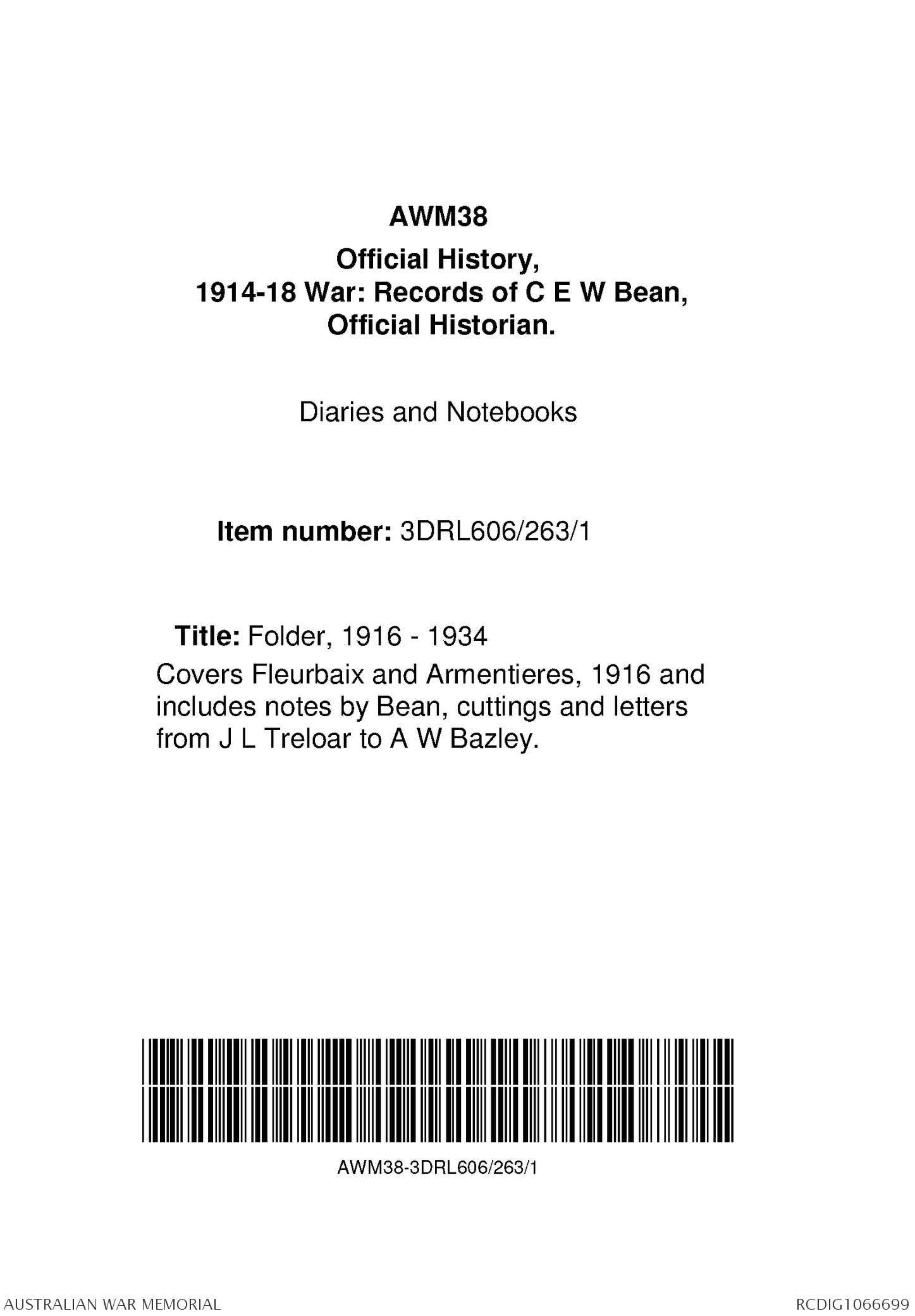
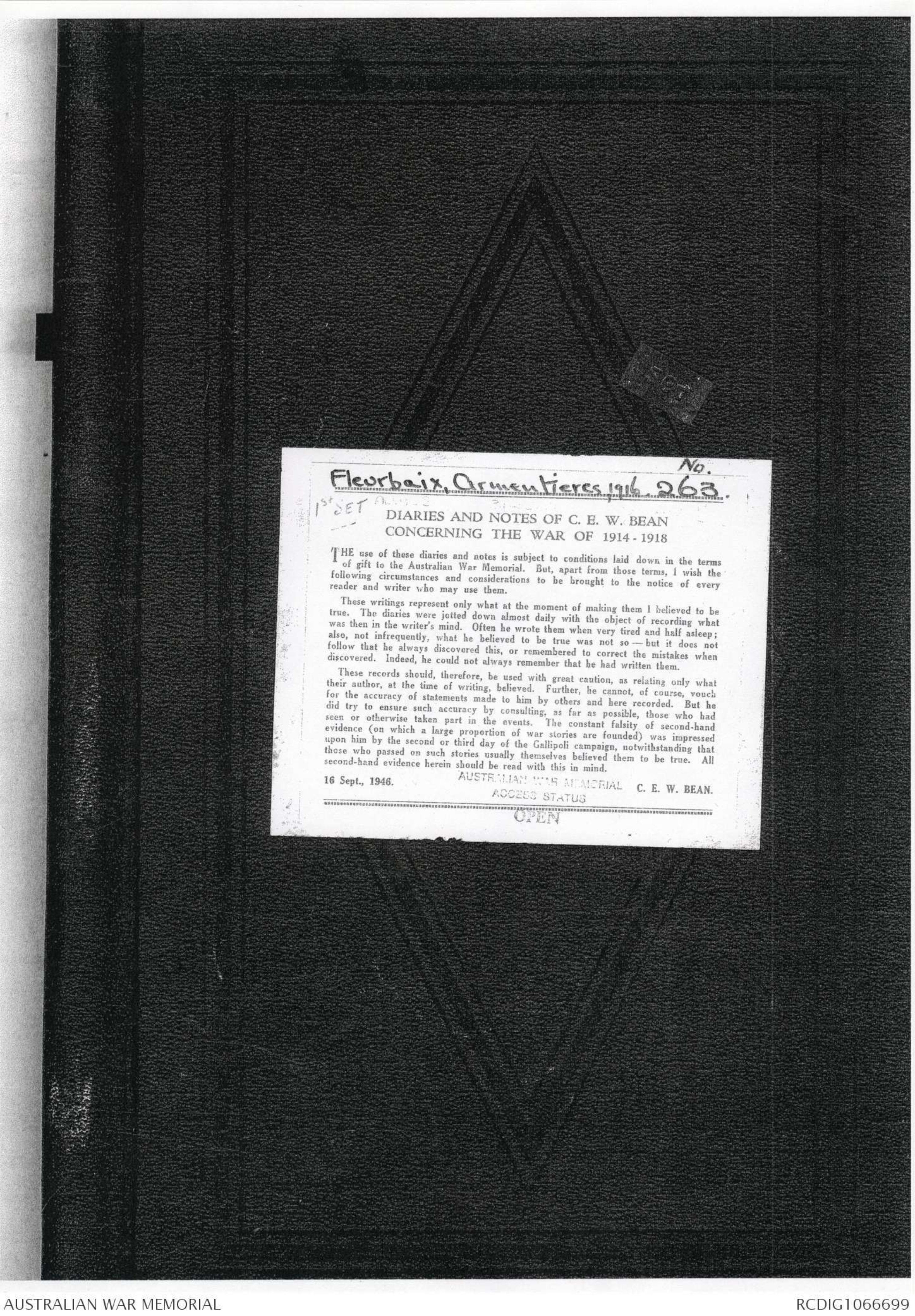
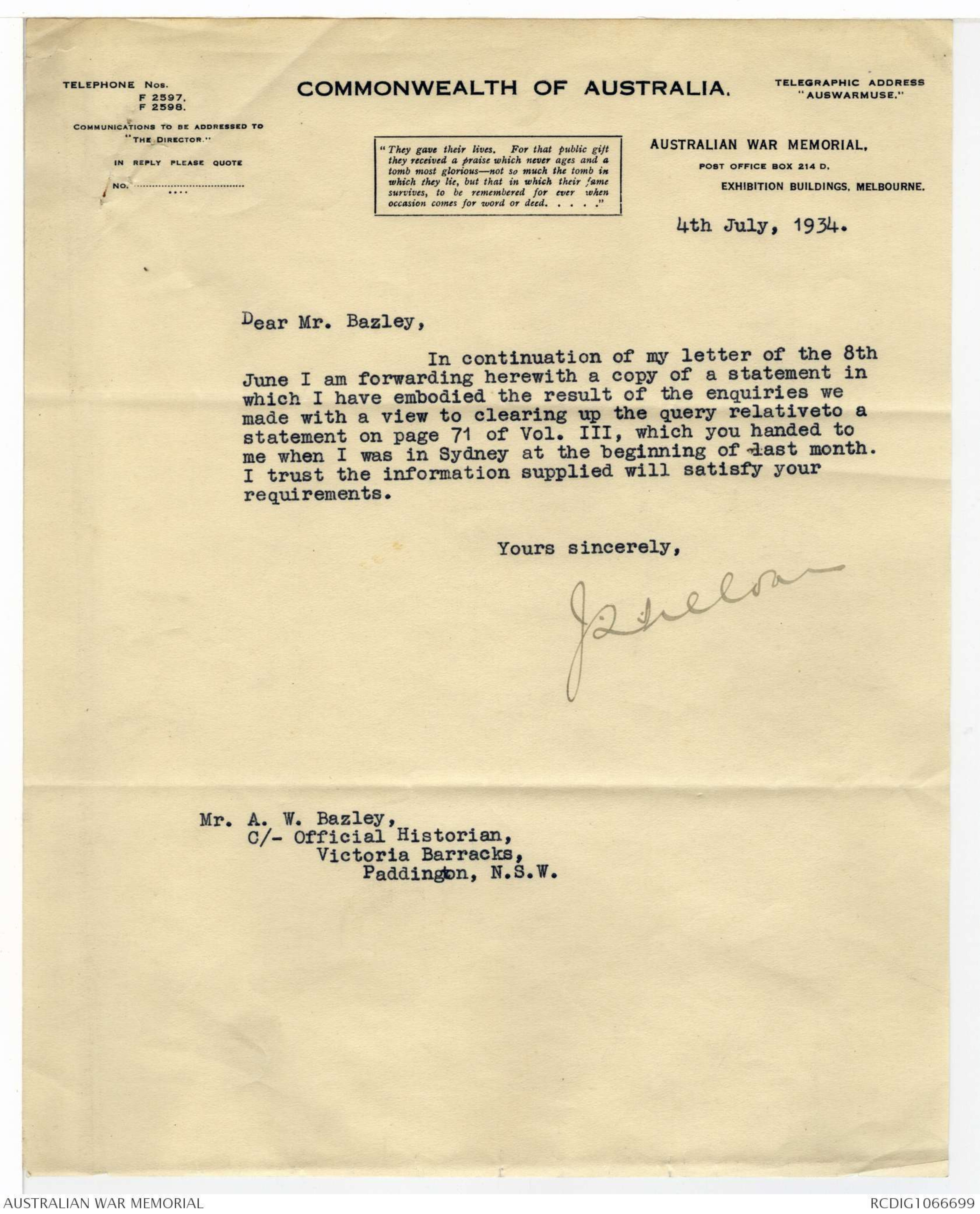
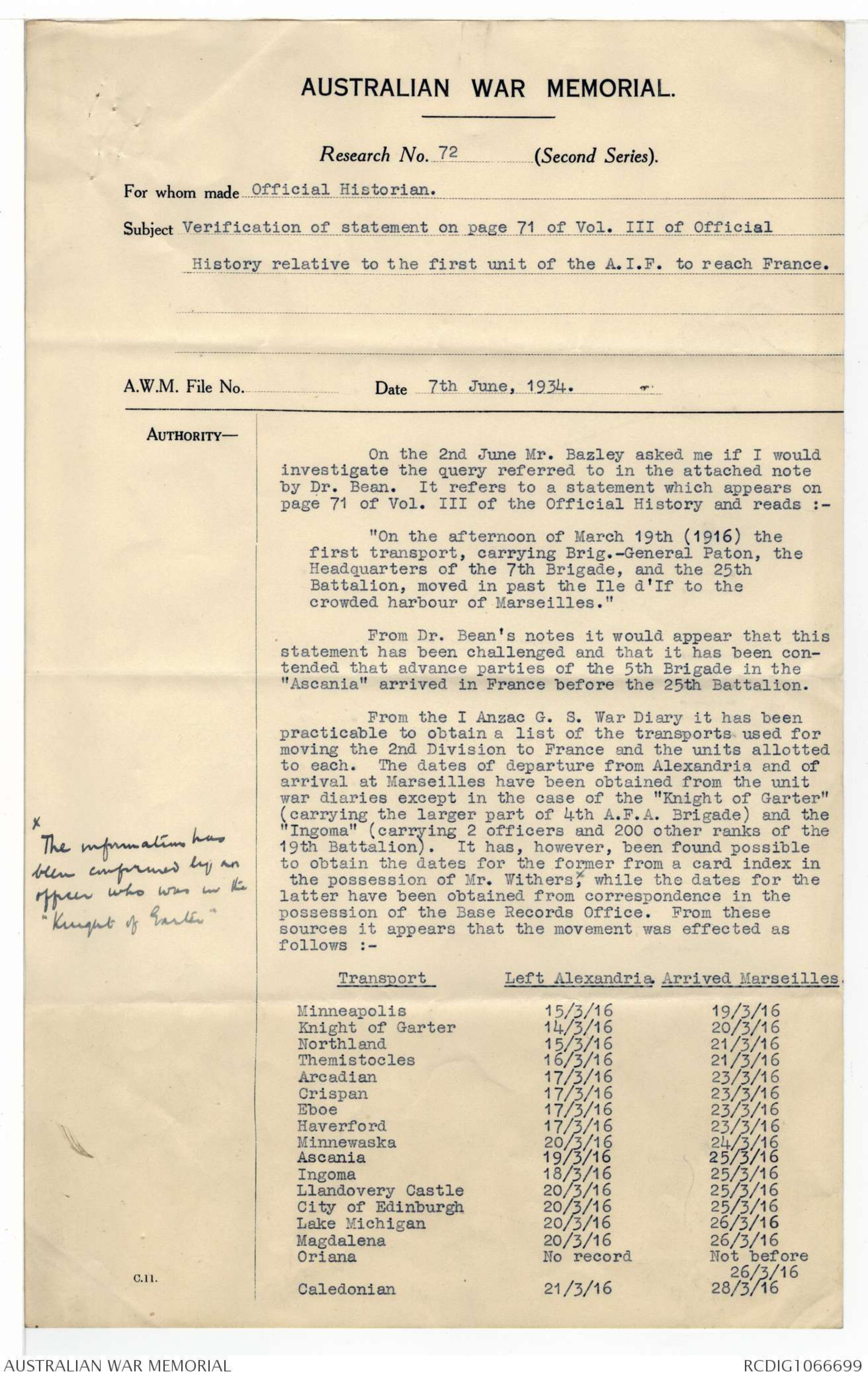
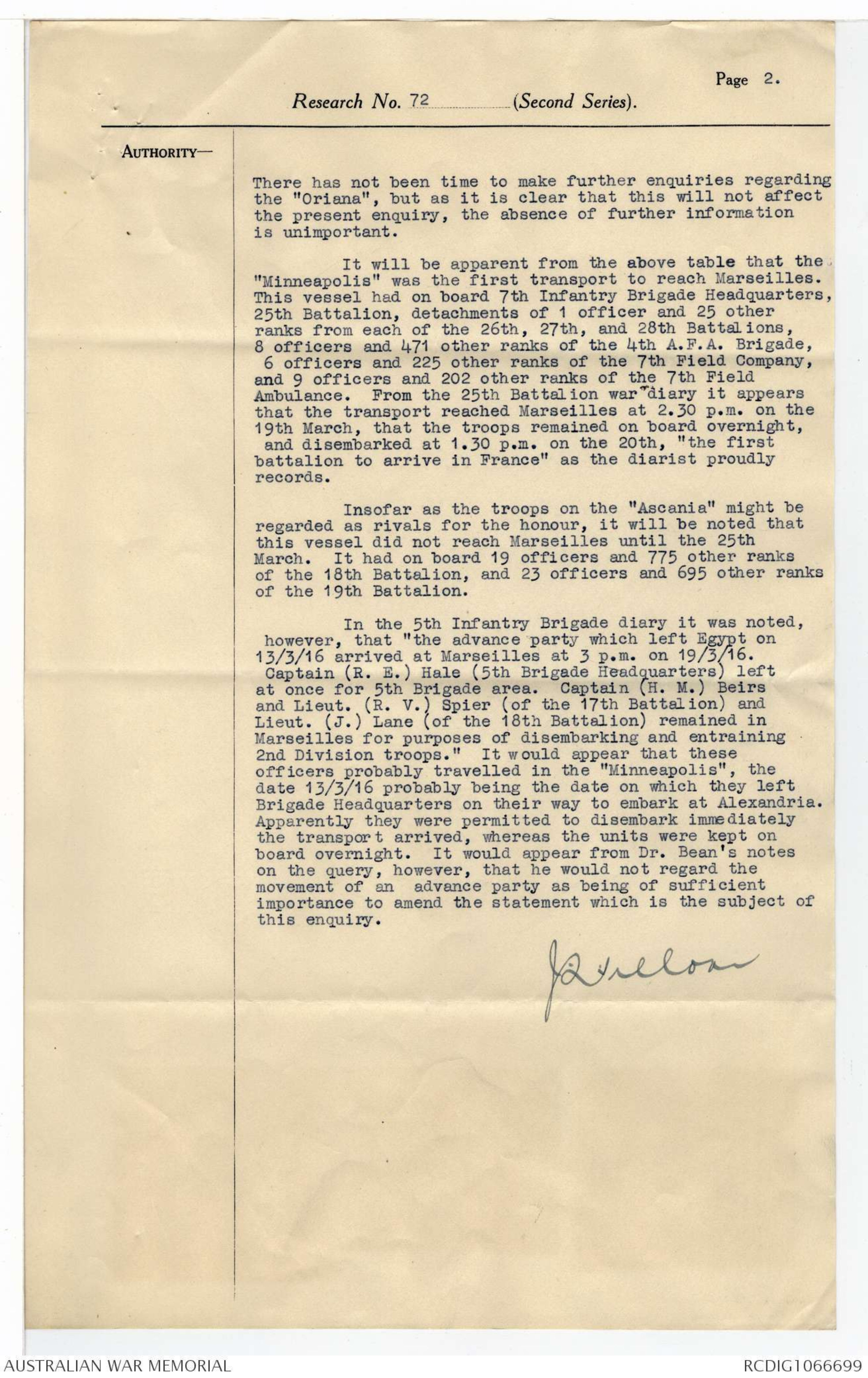
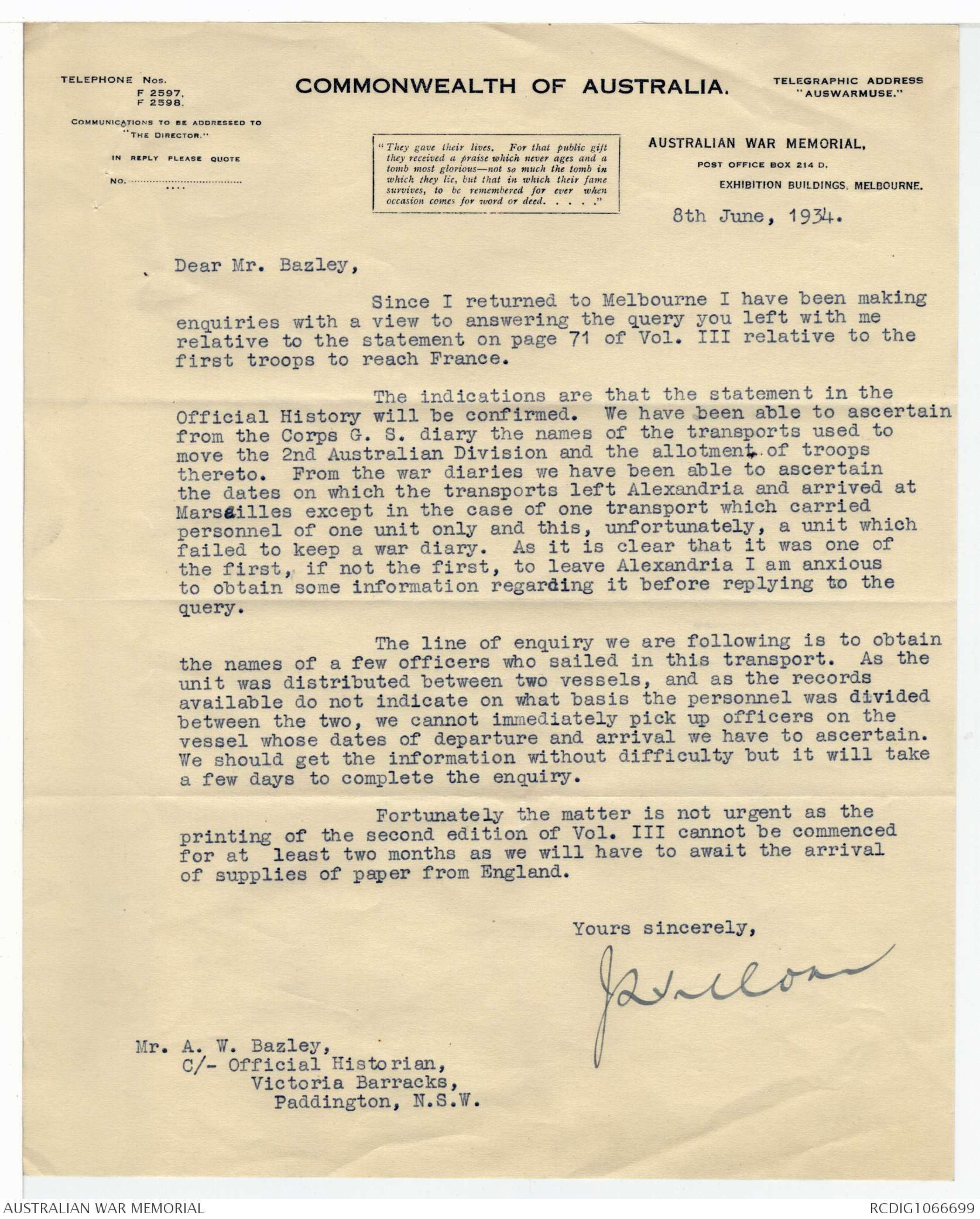
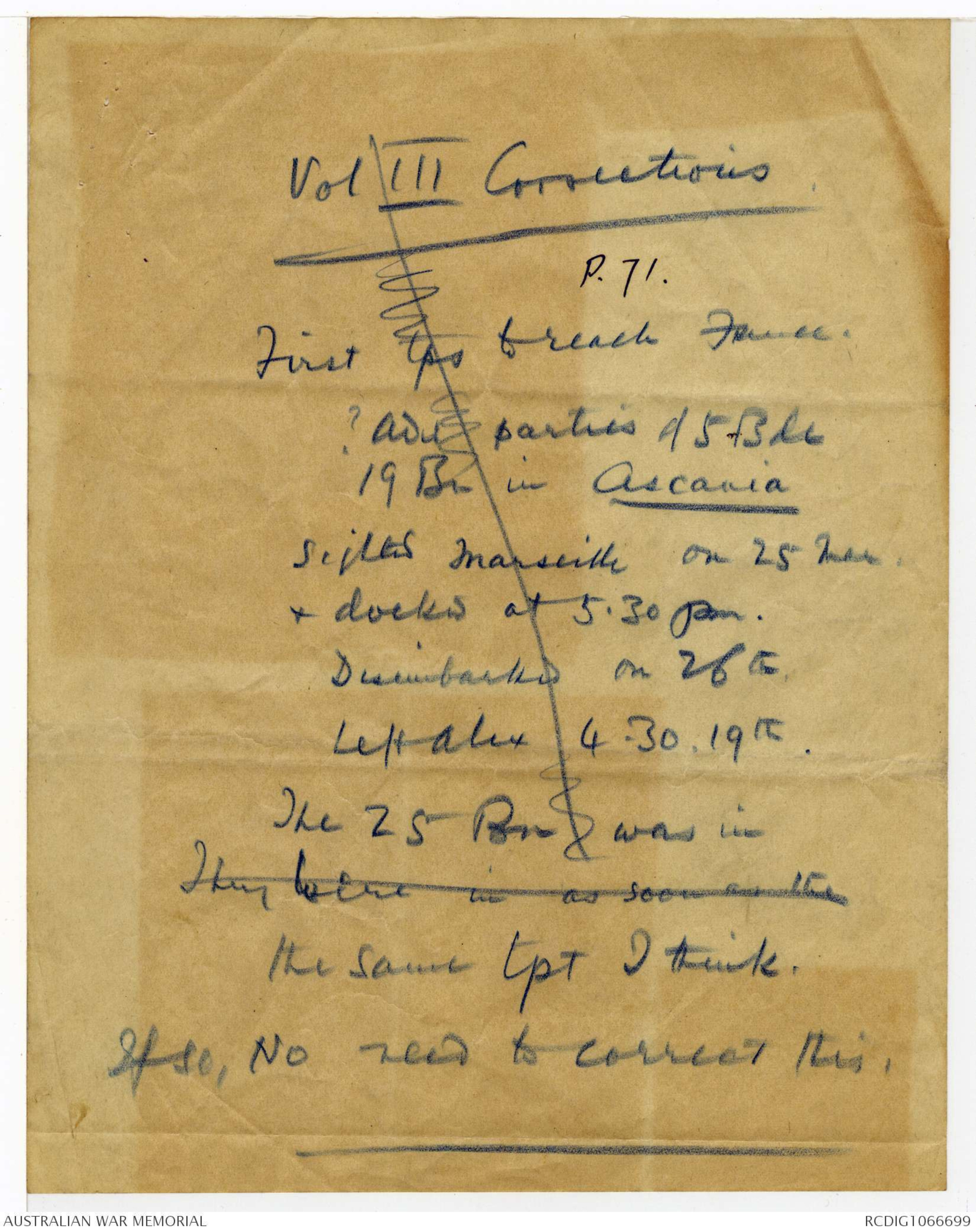
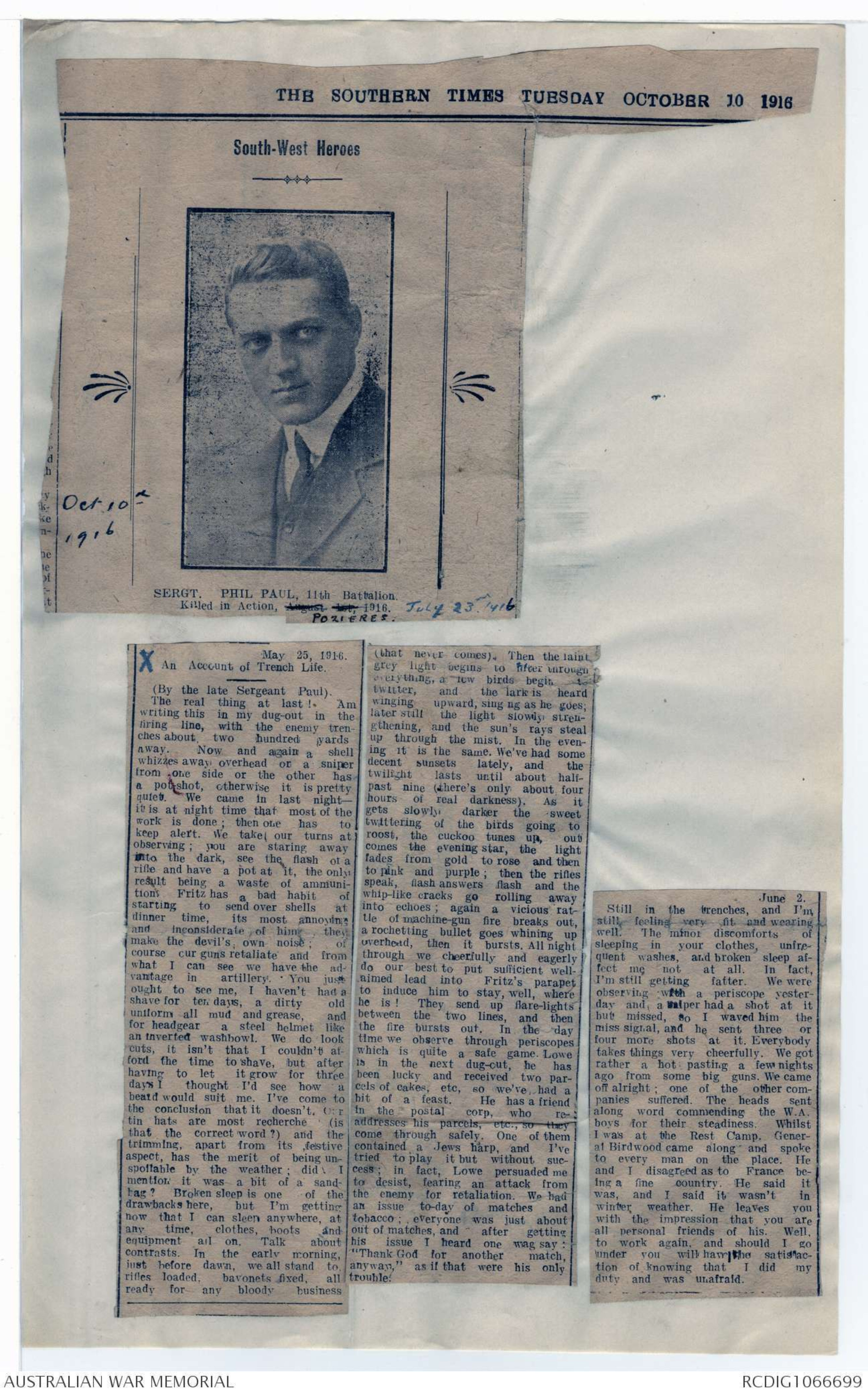
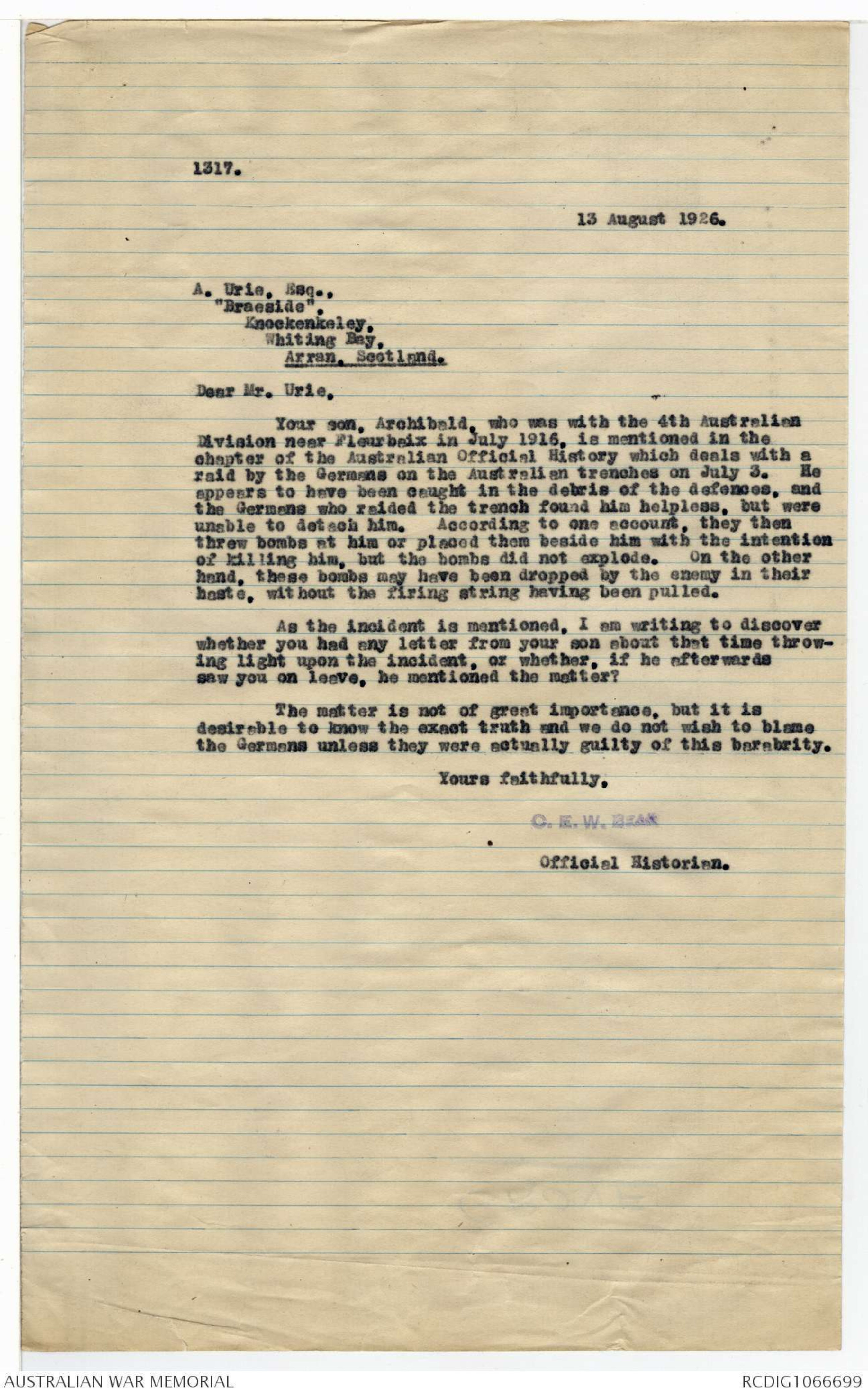
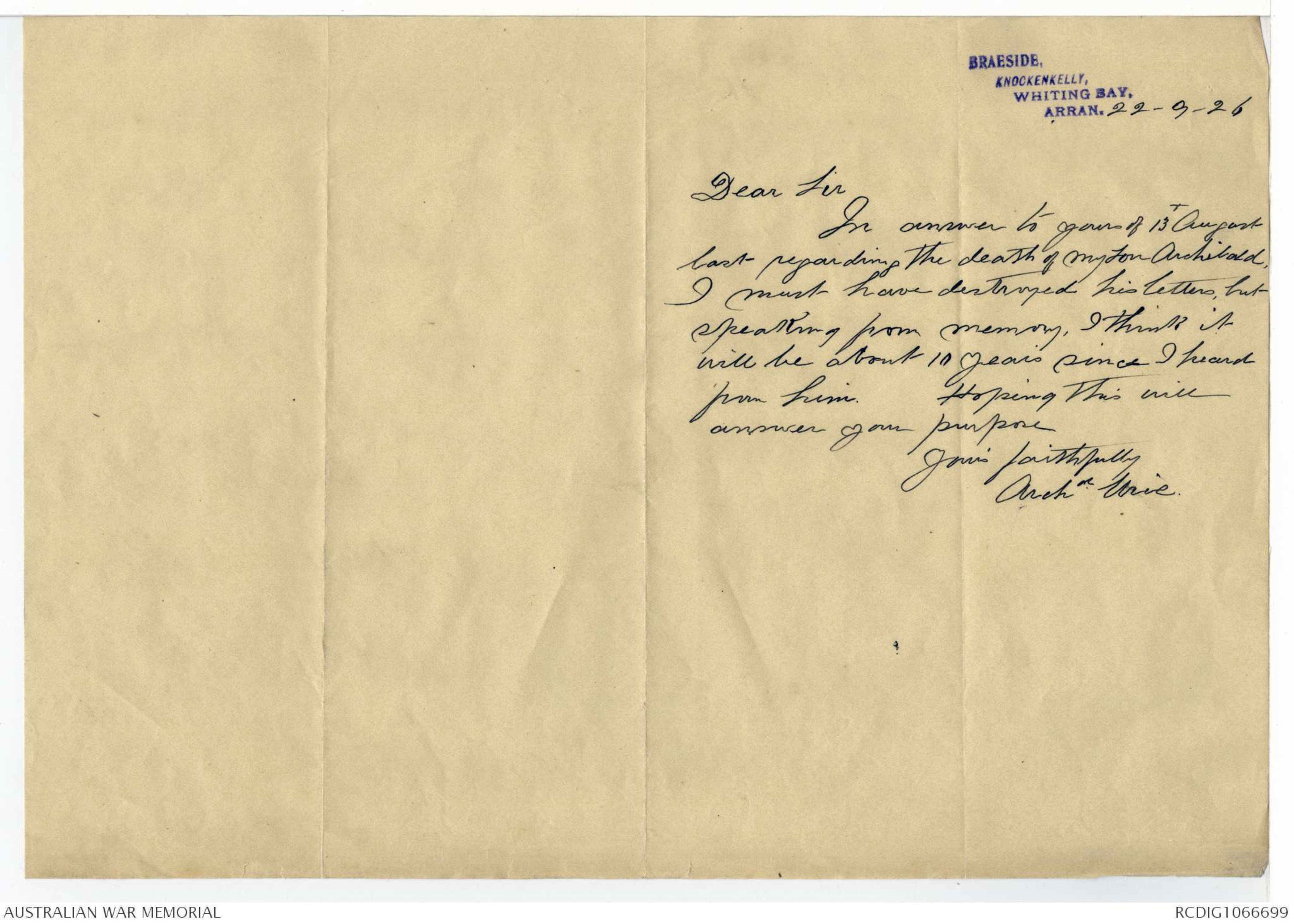
AWM38
Official History,
1914-18 War: Records of C E W Bean,
Official Historian.
Diaries and Notebooks
Item number: 3DRL606/263/1
Title: Folder, 1916 - 1934
Covers Fleurbaix and Armentieres, 1916 and
includes notes by Bean, cuttings and letters
from J L Treloar to A W Bazley.
AWM38-3DRL606/263/1
Fleurbaix, Armentieres, 1916. No. 263.
1st Set AWM 38 3DRL
DIARIES AND NOTES OF C. E. W. BEAN
CONCERNING THE WAR OF 1914 - 1918
THE use of these diaries and notes is subject to conditions laid down in the terms
of gift to the Australian War Memorial. But, apart from those terms, I wish the
following circumstances and considerations to be brought to the notice of every
reader and writer who may use them.
These writings represent only what at the moment of making them I believed to be
true. The diaries were jotted down almost daily with the object of recording what
was then in the writer's mind. Often he wrote them when very tired and half asleep ;
also, not infrequently, what he believed to be true was not so – but it does not
follow that he always discovered this, or remembered to correct the mistakes when
discovered. Indeed, he could not always remember that he had written them.
These records should, therefore, be used with great caution, as relating only what
their author, at the time of writing, believed. Further, he cannot, of course, vouch
for the accuracy of statements made to him by others and here recorded. But he
did try to ensure such accuracy by consulting, as far as possible, those who had
seen or otherwise taken part in the events. The constant falsity of second-hand
evidence (on which a large proportion of war stories are founded) was impressed
upon him by the second or third day of the Gallipoli campaign, notwithstanding that
those who passed on such stories usually themselves believed them to be true. All
second-hand evidence herein should be read with this in mind.
16 Sept. 1946.
C. E. W. BEAN.
AUSTRALIAN WAR MEMORIAL
ACCESS STATUS
OPEN
TELEPHONE Nos.
F 2597.
F 2598.
COMMONWEALTH OF AUSTRALIA.
TELEGRAPHIC ADDRESS
"AUSWARMUSE."
COMMUNICATIONS TO BE ADDRESSED TO
"THE DIRECTOR."
IN REPLY PLEASE QUOTE
No.
"They gave their lives. For that public gift
they received a praise which never ages and a
tomb most glorious—not so much the tomb in
which they lie, but that in which their fame
survives, to be remembered for ever when
occasion comes for word or deed . . . ."
AUSTRALIAN WAR MEMORIAL,
POST OFFICE BOX 214 D,
EXHIBITION BUILDINGS, MELBOURNE.
4th July, 1934.
Dear Mr. Bazley,
In continuation of my letter of the 8th
June I am forwarding herewith a copy of a statement in
which I have embodied the result of the enquiries we
made with a view to clearing up the query relative to a
statement on page 71 of Vol. III, which you handed to
me when I was in Sydney at the beginning of last month.
I trust the information supplied will satisfy your
requirements.
Yours sincerely,
J L Treloar
Mr. A. W. Bazley,
C/- Official Historian,
Victoria Barracks,
Paddington, N.S.W.
AUSTRALIAN WAR MEMORIAL.
Research No. 72 (Second Series).
For whom made Official Historian.
Subject Verification of statement on page 71 of Vol. III of Official
History relative to the first unit of the A.I.F. to reach France.
A.W.M. File No. Date 7th June, 1934.
AUTHORITY—
On the 2nd June Mr. Bazley asked me if I would
investigate the query referred to in the attached note
by Dr. Bean. It refers to a statement which appears on
page 71 of Vol. III of the Official History and reads :-
"On the afternoon of March 19th (1916) the
first transport, carrying Brig.-General Paton, the
Headquarters of the 7th Brigade, and the 25th
Battalion, moved in past the Ile d'If to the
crowded harbour of Marseilles."
From Dr. Bean's notes it would appear that this
statement has been challenged and that it has been contended
that advance parties of the 5th Brigade in the
"Ascania" arrived in France before the 25th Battalion.
From the I Anzac G. S. War Diary it has been
practicable to obtain a list of the transports used for
moving the 2nd Division to France and the units allotted
to each. The dates of departure from Alexandria and of
arrival at Marseilles have been obtained from the unit
war diaries except in the case of the "Knight of Garter"
(carrying the larger part of 4th A.F.A. Brigade) and the
"Ingoma" (carrying 2 officers and 200 other ranks of the
19th Battalion). It has, however, been found possible
to obtain the dates for the former from a card index in
the possession of Mr. Withers,x while the dates for the
latter have been obtained from correspondence in the
possession of the Base Records Office. From these
sources it appears that the movement was effected as
follows :-
[*xThe information has
been confirmed by an
officer who was in the
"Knight of Garter"*]
Transport Left Alexandria. Arrived Marseilles.
Minneapolis 15/3/16 19/3/16
Knight of Garter 14/3/16 20/3/16
Northland 15/3/16 21/3/16
Themistocles 16/3/16 21/3/16
Arcadian 17/3/16 23/3/16
Crispan 17/3/16 23/3/16
Eboe 17/3/16 23/3/16
Haverford 17/3/16 23/3/16
Minnewaska 20/3/16 24/3/16
Ascania 19/3/16 25/3/16
Ingoma 18/3/16 25/3/16
Llandovery Castle 20/3/16 25/3/16
City of Edinburgh 20/3/16 25/3/16
Lake Michigan 20/3/16 26/3/16
Magdalena 20/3/16 26/3/16
Oriana No Record Not before 26/3/16
Caledonian 21/3/16 28/3/16
[* C.11. *]
Page 2.
Research No. 72 (Second Series).
AUTHORITY—
There has not been time to make further enquiries regarding
the "Oriana", but as it is clear that this will not affect
the present enquiry, the absence of further information
is unimportant.
It will be apparent from the above table that the
"Minneapolis" was the first transport to reach Marseilles.
This vessel had on board 7th Infantry Brigade Headquarters,
25th Battalion, detachments of 1 officer and 25 other
ranks from each of the 26th, 27th, and 28th Battalions,
8 officers and 471 other ranks of the 4th A.F.A. Brigade,
6 officers and 225 other ranks of the 7th Field Company,
and 9 officers and 202 other ranks of the 7th Field
Ambulance. From the 25th Battalion war diary it appears
that the transport reached Marseilles at 2.30 p.m. on the
19th March, that the troops remained on board overnight,
and disembarked at 1.30 p.m. on the 20th, "the first
battalion to arrive in France" as the diarist proudly
records.
Insofar as the troops on the "Ascania" might be
regarded as rivals for the honour, it will be noted that
this vessel did not reach Marseilles until the 25th
March. It had on board 19 officers and 775 other ranks
of the 18th Battalion, and 23 officers and 695 other ranks
of the 19th Battalion.
In the 5th Infantry Brigade diary it was noted,
however, that "the advance party which left Egypt on
13/3/16 arrived at Marseilles at 3 p.m. on 19/3/16.
Captain (R. E.) Hale (5th Brigade Headquarters) left
at once for 5th Brigade area. Captain (H. M.) Beirs
and Lieut. (R. V.) Spier (of the 17th Battalion) and
Lieut. (J.) Lane (of the 18th Battalion) remained in
Marseilles for purposes of disembarking and entraining
2nd Division troops." It would appear that these
officers probably travelled in the "Minneapolis", the
date 13/3/16 probably being the date on which they left
Brigade Headquarters on their way to embark at Alexandria.
Apparently they were permitted to disembark immediately
the transport arrived, whereas the units were kept on
board overnight. It would appear from Dr. Bean's notes
on the query, however, that he would not regard the
movement of an advance party as being of sufficient
importance to amend the statement which is the subject of
this enquiry.
J L Treloar
TELEPHONE Nos.
F 2597.
F 2598.
COMMONWEALTH OF AUSTRALIA.
TELEGRAPHIC ADDRESS
"AUSWARMUSE."
COMMUNICATIONS TO BE ADDRESSED TO
"THE DIRECTOR."
IN REPLY PLEASE QUOTE
No.
"They gave their lives. For that public gift
they received a praise which never ages and a
tomb most glorious—not so much the tomb in
which they lie, but that in which their fame
survives, to be remembered for ever when
occasion comes for word or deed . . . ."
AUSTRALIAN WAR MEMORIAL,
POST OFFICE BOX 214 D,
EXHIBITION BUILDINGS, MELBOURNE.
8th June, 1934.
Dear Mr. Bazley,
Since I returned to Melbourne I have been making
enquiries with a view to answering the query you left with me
relative to the statement on page 71 of Vol. III relative to the
first troops to reach France.
The indications are that the statement in the
Official History will be confirmed. We have been able to ascertain
from the Corps G. S. diary the names of the transports used to
move the 2nd Australian Division and the allotment of troops
thereto. From the war diaries we have been able to ascertain
the dates on which the transports left Alexandria and arrived at
Marseilles except in the case of one transport which carried
personnel of one unit only and this, unfortunately, a unit which
failed to keep a war diary. As it is clear that it was one of
the first, if not the first, to leave Alexandria I am anxious
to obtain some information regarding it before replying to the
query.
The line of enquiry we are following is to obtain
the names of a few officers who sailed in this transport. As the
unit was distributed between two vessels, and as the records
available do not indicate on what basis the personnel was divided
between the two, we cannot immediately pick up officers on the
vessel whose dates of departure and arrival we have to ascertain.
We should get the information without difficulty but it will take
a few days to complete the enquiry.
Fortunately the matter is not urgent as the
printing of the second edition of Vol. III cannot be commenced
for at least two months as we will have to await the arrival
of supplies of paper from England.
Yours sincerely,
J L Treloar
Mr. A. W. Bazley,
C/- Official Historian,
Victoria Barracks,
Paddington, N.S.W.
Vol III Corrections.
P.71.
First tps reach France.
?Adv parties & 5 Bde
19 Bn in Ascania
Sighted Marseille on 25 Mar.
& docked at 5.30pm.
Disembarked on 26th.
Left Alex 4.30 . 19th.
The 25 Bn was in
They were in as soon as the
the same tpt I think.
If so, NO need to correct this.
THE SOUTHERN TIMES TUESDAY OCTOBER 10 1916
South-West Heroes
Photograph - see original document
[*Oct 10th
1916*]
SERGT. PHIL. PAUL, 11th Battalion
Killed in Action, August 1st 1916. July 23rd. 1916
POZIERES.
[*X*]
May 25, 1916.
An Account of Trench Life.
(By the late Sergeant Paul).
Newspaper article - see original document
1317.
13 August 1926.
A. Urie, Esq.,
"Braeside",
Knockenkeley,
Whiting Bay,
Arran. Scotland.
Dear Mr Urie,
Your son, Archibald, who was with the 4th Australian
Division near Fleurbaix in July 1916, is mentioned in the
chapter of the Australian Official History which deals with a
raid by the Germans on the Australian trenches on July 3. He
appears to have been caught in the debris of the defences, and
the Germans who raided the trench found him helpless, but were
unable to detach him. According to one account, they then
threw bombs at him or placed them beside him with the intention
of killing him, but the bombs did not explode. On the other
hand, these bombs may have been dropped by the enemy in their
haste, without the firing string having been pulled.
As the incident is mentioned, I am writing to discover
whether you had any letter from your son about that time throwing
light upon the incident, or whether, if he afterwards
saw you on leave, he mentioned the matter?
The matter is not of great importance, but it is
desirable to know the exact truth and we do not wish to blame
the Germans unless they were actually guilty of this barabrity.
Yours faithfully.
C. E. W. BEAN
Official Historian.
BRAESIDE.
KNOCKENKELLY,
WHITING BAY,
ARRAN. 22-9-26
Dear Sir
In answer to yours of 13t August
last regarding the death of my son Archibald,
I must have destroyed his letters, but
speaking from memory, I think it
will be about 10 years since I heard
from him. Hoping this will
answer your purpose
Yours faithfully
Archd Urie.
 Deb Parkinson
Deb ParkinsonThis transcription item is now locked to you for editing. To release the lock either Save your changes or Cancel.
This lock will be automatically released after 60 minutes of inactivity.